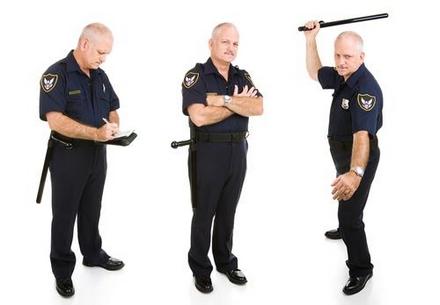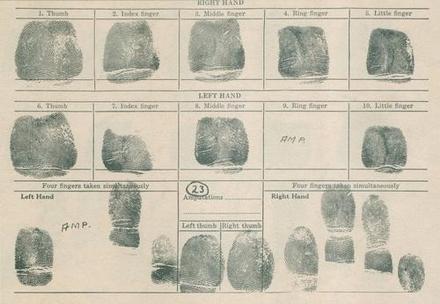TELEPHONES ANSWERED 24 HOURS A DAY
Recent Blog Posts
Confidentiality of Attorney Consultations
 When you or a loved one has been charged with a crime, you deserve the best possible representation from an attorney you can trust. The major concern for many, of course, is how to go about establishing that trust, especially if you have never needed legal counsel before. Before retaining a particular lawyer or law firm, you may speak with several, in an effort to determine your ability to work with that office and to ensure your respective goals and values are complementary. This process, however, can raise questions for individuals regarding confidentiality, as a potential defendant may share sensitive information in the course of no-obligation consultations with a number of potential candidates.
When you or a loved one has been charged with a crime, you deserve the best possible representation from an attorney you can trust. The major concern for many, of course, is how to go about establishing that trust, especially if you have never needed legal counsel before. Before retaining a particular lawyer or law firm, you may speak with several, in an effort to determine your ability to work with that office and to ensure your respective goals and values are complementary. This process, however, can raise questions for individuals regarding confidentiality, as a potential defendant may share sensitive information in the course of no-obligation consultations with a number of potential candidates.
Rules of Conduct
In their practice, attorneys must adhere to certain professional and ethical standards. Such standards are typically drafted for use in the applicable jurisdictions, and failure to comply can result in serious sanctions against an attorney, up to and including potential disbarment. The accepted standards provide guidelines for much of an attorney’s practice including selecting cases, firm management, relationship with the court, and, of course, confidentiality. In Illinois, these regulations have been set forth in the Illinois Rules of Professional Conduct, which constitutes Article VIII of the Illinois Supreme Court Rules.
What to Do after an Incident of Police Brutality
 In recent months the nation has grappled with the question of police tactics and the use of force by law enforcement officers. Are police becoming too much like a military force that oppresses as opposed to a community presence that encourages cooperation? Are police tactics too aggressive? Is there sufficient oversight to ensure officers do not use too much force in dealing with a situation? While members of local, state, and the national government debate these questions, individuals who observe police tactics on the news may themselves wonder what to do if they believe they are victims of police brutality.
In recent months the nation has grappled with the question of police tactics and the use of force by law enforcement officers. Are police becoming too much like a military force that oppresses as opposed to a community presence that encourages cooperation? Are police tactics too aggressive? Is there sufficient oversight to ensure officers do not use too much force in dealing with a situation? While members of local, state, and the national government debate these questions, individuals who observe police tactics on the news may themselves wonder what to do if they believe they are victims of police brutality.
Police Brutality is a Violation of Your Civil Rights
Laws permit police officers to use a reasonable amount of force to protect themselves or others, apprehend a suspect, or defuse a hostile situation. However, when police officers use force that is not reasonable under the circumstances, a federal civil rights violation may have occurred. For instance, an officer who subdues then punches and kicks an elderly woman because she would not move away from an area fast enough has likely violated that woman’s civil rights.
Emerging Adults and the Future of the Criminal Justice System
 In 1899, the nation’s first juvenile criminal court was established right here in Cook County, Illinois. The goal of the new system was to prevent the mistakes and poor choices of young people from evolving into a lifetime of bad decisions and criminal prosecution. The juvenile court was—and remains to this day—primarily focused on rehabilitating young offenders rather than severely punishing criminal activity. Once an individual turns 18, however, the situation changes dramatically, as juvenile-type behavior such as shoplifting or an after-school fight suddenly carry much more severe criminal penalties.
In 1899, the nation’s first juvenile criminal court was established right here in Cook County, Illinois. The goal of the new system was to prevent the mistakes and poor choices of young people from evolving into a lifetime of bad decisions and criminal prosecution. The juvenile court was—and remains to this day—primarily focused on rehabilitating young offenders rather than severely punishing criminal activity. Once an individual turns 18, however, the situation changes dramatically, as juvenile-type behavior such as shoplifting or an after-school fight suddenly carry much more severe criminal penalties.
New Demographic Group
Perhaps, in past generations, 18 was a reasonable, albeit distinct, threshold between youth and adulthood. The evolution of society, however, seems to indicate that cultural concepts of an adult may be changing, and that the criminal justice system may need to evolve as well. That which was once considered a transitional stage has begun gaining recognition as a unique demographic age group. Developmental experts and scholars are now using the term “emerging adults” to describe people between 18 and 25 years old. Compared to 50 years ago, there is little question that emerging adults are less independent than in the past, and many have yet to settle into what most consider to be “adult roles.”
A Death Knell for the Death Penalty?
 The debate over the morality and constitutionality of the death penalty is one that has been ongoing for decades, if not longer. The most recent battleground, albeit indirectly, was none other than the United States Supreme Court, as a related case demonstrated the possibility that a full-scale attack on the legality of capital punishment could have rather interesting results. Although the death penalty was abolished in Illinois in 2011, the practice remains legal in 31 states and in federal prosecution of the most serious of criminal cases.
The debate over the morality and constitutionality of the death penalty is one that has been ongoing for decades, if not longer. The most recent battleground, albeit indirectly, was none other than the United States Supreme Court, as a related case demonstrated the possibility that a full-scale attack on the legality of capital punishment could have rather interesting results. Although the death penalty was abolished in Illinois in 2011, the practice remains legal in 31 states and in federal prosecution of the most serious of criminal cases.
Glossip v. Gross
In late June, the nation’s High Court handed down its ruling on Glossip v. Gross, a case from Oklahoma that challenged the use of a particular sedative in the process of lethal injection. The drug in question had been linked to several controversial executions last year and three death row inmates sought to have its use barred. In a 5-4 decision, the Supreme Court allowed the continued use of the drug, but the dissenting Justices issued some thought-provoking opinions on the death penalty in general.
Bad Checks Can Lead to Criminal Prosecution
 The 2002 film Catch Me If You Can tells the dramatized story of Frank Abagnale Jr. who, over the course of several years, wrote thousands of dollars in bad checks while avoiding local and federal authorities. Abagnale eventually progressed into other types of confidence schemes, but they all began with passing bad checks. Although he was eventually caught and has since gone to work assisting the FBI in tracking and preventing crimes of fraud, his story often raises questions about how bad checks may be prosecuted.
The 2002 film Catch Me If You Can tells the dramatized story of Frank Abagnale Jr. who, over the course of several years, wrote thousands of dollars in bad checks while avoiding local and federal authorities. Abagnale eventually progressed into other types of confidence schemes, but they all began with passing bad checks. Although he was eventually caught and has since gone to work assisting the FBI in tracking and preventing crimes of fraud, his story often raises questions about how bad checks may be prosecuted.
Bad Checks
Most people realize that a check is a financial instrument containing an unconditional order for the signer’s bank to pay a specified sum to the listed payee. As a signed and dated document, a check represents a bill of exchange. Put in simple terms, when you write a check, you order to bank to pay the designated amount to the intended recipient if and when they present the check to the bank for payment.
Study Finds Fingerprints Carry Evidence of Cocaine Use
 Researchers have found a new method determining whether an individual has used cocaine, and it does not require the collection of bodily fluids. A team of scientists from the University of Surrey in the United Kingdom have discovered that a single fingerprint may be enough to verify the presence of cocaine in a person’s system. In addition to being less invasive than blood or urine tests, a fingerprint analysis may also increase reliability as the identifying characteristics associated with fingerprints are not easily faked or compromised.
Researchers have found a new method determining whether an individual has used cocaine, and it does not require the collection of bodily fluids. A team of scientists from the University of Surrey in the United Kingdom have discovered that a single fingerprint may be enough to verify the presence of cocaine in a person’s system. In addition to being less invasive than blood or urine tests, a fingerprint analysis may also increase reliability as the identifying characteristics associated with fingerprints are not easily faked or compromised.
The testing process involves the collection of a single fingerprint and analysis utilizing a technology known as mass spectrometry. Mass spectrometry is used to detect chemical components in the residue left by a fingerprint and is able to isolate traces of metabolized cocaine. The presence of two compounds in particular, benzoylecgonine and methylecgonine, verify that an individual has ingested and metabolized cocaine rather than having just touched it.
Common Causes of Wrongful Convictions
 The criminal justice system in the United States is based on the ideals that only those proven to be guilty beyond reasonable doubt should be convicted of crime. In practice, however, the system is far from perfect, and every year, hundreds if not thousands of individuals are found guilty of crimes they did not commit. With the proliferation of DNA-based exonerations, the issue has been brought to the forefront in recent years, as some 2000 convictions have been overturned in the last several decades. Still, one wrongful conviction is too many, and if you or a loved one has suffered legal consequences for a crime you did not commit, a qualified lawyer may be able to help.
The criminal justice system in the United States is based on the ideals that only those proven to be guilty beyond reasonable doubt should be convicted of crime. In practice, however, the system is far from perfect, and every year, hundreds if not thousands of individuals are found guilty of crimes they did not commit. With the proliferation of DNA-based exonerations, the issue has been brought to the forefront in recent years, as some 2000 convictions have been overturned in the last several decades. Still, one wrongful conviction is too many, and if you or a loved one has suffered legal consequences for a crime you did not commit, a qualified lawyer may be able to help.
Earlier this year, a Washington, D.C., Superior Court ordered to the District of Columbia to pay more than $9 million in damages to man whose life had been ruined by a wrongful conviction. The man had spent more than 22 years behind bars for a rape and robbery that he did not commit, as proven by subsequent DNA evidence. The question is, though: how do these things happen? How does an innocent person get convicted of something he or she did not do?
Court Supervision and First-Time DUI Offenders
 Consider a plausible scenario: you go out with friends for drinks after work one Friday afternoon. You stay for an hour or two, enjoy a few laughs and a couple beers, and then head home for a late dinner. While you are starting to feel the effects of the alcohol, you know you are going home to eat, and you did not have that much to drink. Two blocks from your house, you roll through a stop sign and get pulled over. The officer can smell beer on you and asks you to submit to a BAC test. You blow a 0.10 on the breathalyzer, and all of sudden, you have been arrested for driving under the influence. Such a situation could easily happen to anyone, and, fortunately, court supervision may offer individuals a way to recover from a relatively easy mistake.
Consider a plausible scenario: you go out with friends for drinks after work one Friday afternoon. You stay for an hour or two, enjoy a few laughs and a couple beers, and then head home for a late dinner. While you are starting to feel the effects of the alcohol, you know you are going home to eat, and you did not have that much to drink. Two blocks from your house, you roll through a stop sign and get pulled over. The officer can smell beer on you and asks you to submit to a BAC test. You blow a 0.10 on the breathalyzer, and all of sudden, you have been arrested for driving under the influence. Such a situation could easily happen to anyone, and, fortunately, court supervision may offer individuals a way to recover from a relatively easy mistake.
While the Illinois Office of the Secretary of State handles the enforcement of administrative penalties, such as suspension of your driver’s license, you cannot be convicted without due process in criminal court. Depending on the severity of the case, including the circumstances of the DUI charge, injuries caused as a result, or serious property damage, many courts may opt to impose court supervision rather than full-fledged criminal penalties.
Innocent Until Proven Guilty
 One of the cornerstones of American criminal law and jurisprudence is the assumption that all citizens are innocent until proven guilty. This most basic principle is designed to guide the actions of law enforcement, prosecutors, defenders, and the rules of courtroom procedure to ensure that an accused individual is not treated as guilty until the facts clearly demonstrate such to be true.
One of the cornerstones of American criminal law and jurisprudence is the assumption that all citizens are innocent until proven guilty. This most basic principle is designed to guide the actions of law enforcement, prosecutors, defenders, and the rules of courtroom procedure to ensure that an accused individual is not treated as guilty until the facts clearly demonstrate such to be true.
Presumption of Innocence
The concept of innocent until proven guilty, to the surprise of many, is not explicitly addressed in the United States Constitution or the Bill of Rights. However, the Fifth Amendment states that no person can be deprived of life, liberty, or property without due process of law. For centuries “due process of law” in western culture, has included the basic tenet that an accused individual must be proven guilty.
Among the earliest legal citations for the idea can be found in Digesta seu Pendectae¸ or the Digest, compiled in the 6th century by the Roman emperor Justinian I. The Digest represented part of the Corpus Juris Civilis or the “Body of Civil Law.” Among the writings contained the Digest was the general rule of evidence: Ei inumbit probatio qui dicit, non qui negat—“Proof lies on he who asserts, not on he who denies.” The United States Supreme Court officially recognized the presumption in its 1895 decision in Coffin v. United States.
RAP Sheets: Accessing Your Cook County Police Record
 Have you ever wondered how the word “rap” came to mean “reputation?” Of course, it is almost always used in with a negative connotation, as someone with a shady past may be said to have a “bad rap.” Interestingly, it turns out that “rap” is not a colloquial shortening of “reputation,” but instead is an acronym taken from the Federal Bureau of Investigation, as the FBI established an interstate standard for criminal history record-keeping. An individual’s criminal history is known as a Record of Arrests and Prosecution, or RAP Sheet.
Have you ever wondered how the word “rap” came to mean “reputation?” Of course, it is almost always used in with a negative connotation, as someone with a shady past may be said to have a “bad rap.” Interestingly, it turns out that “rap” is not a colloquial shortening of “reputation,” but instead is an acronym taken from the Federal Bureau of Investigation, as the FBI established an interstate standard for criminal history record-keeping. An individual’s criminal history is known as a Record of Arrests and Prosecution, or RAP Sheet.
If you have a criminal history, it is very important to have clear understanding of what may be listed on your RAP Sheet. Criminal background checks are a fairly common practice for employment, volunteer work, and other applications, and reviewing your history first can help prevent problems. Obtaining a copy of your RAP Sheet can help you:




